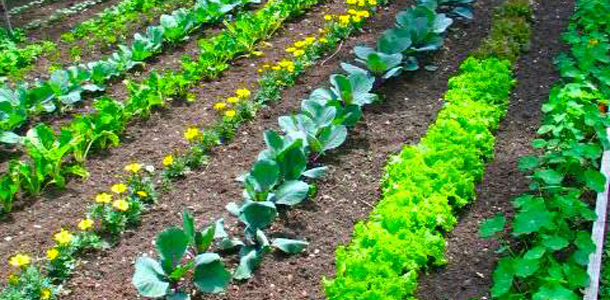Tips For Planning A Vegetable Garden!
There are many reasons to want to start your own vegetable garden, but sometimes there are also many reasons to put off actually starting.. Here are some tips when planning a new vegetable garden for your home!
1. Location
Finding a perfect location for your veggie garden may be difficult, but always remember plants need Sunshine and they also need shelter from the wind – wind is the enemy of vegetables as it dries out the soil.
2. Plan What You Want To Plant
Ask yourself what you like to eat and how much space you have.
Autumn is a time to enjoy the last of the warmer weather in the garden! The cooler weather means it’s time to plant a variety of herbs, broccoli, onions, shallots, spinach and bok choy!
Tomatoes, lettuce, cucumber, beans, beetroot, leeks, potatoes, capsicum etc are all favourable and pretty forgiving; they don’t take much space and taste so much better fresh!
3. Improving The Soil
Adding compost will really improve your garden and help you produce more. It breaks up the soil, helps hold water long enough for plants to get it and it makes lots of broken down bits of vegetable available for new roots to gather up and make more vegetables.
The better your soil, the more you’ll produce but even poor soil can be improved by growing, watering and digging your harvested plants back up.
4. Pest Control
Pests and disease are ongoing problems for most vegetable gardeners. Although specific problems may require special solutions, there are some general principles you can follow.
- Use fences to deter rabbits. Make sure the bottom of the fence extends roughly 6 inches under the soil to stop rabbits from digging underneath it.
- Row covers, which are lightweight sheets of translucent plastic, protect young crops against may common insects. Row covers are also helpful to prevent damage from light frosts.
- Reduce fungal diseases by watering the soil, not the leaves of pants. If you use a sprinkler do it early in the day so the leaves will dry by nightfall.
- Grow varieties that are listed as disease resistant. Garden catalogue and websites should tell you which varieties offer the most protection.
Use insecticidal soap sprays to control harmful bugs. Most garden centres carry these products. Whatever pest chemicals you use, ready the label carefully and follow the instructions.
5. Make It A Habit
The important thing is the habit – just begin and it’ll grow on you. Just add food, water and attention, a little and often. They’ll show you. There’s an old saying: “The best fertilizer is the gardener’s boots”. Remind yourself just to be in the garden every day or three so that you notice what’s going on.


